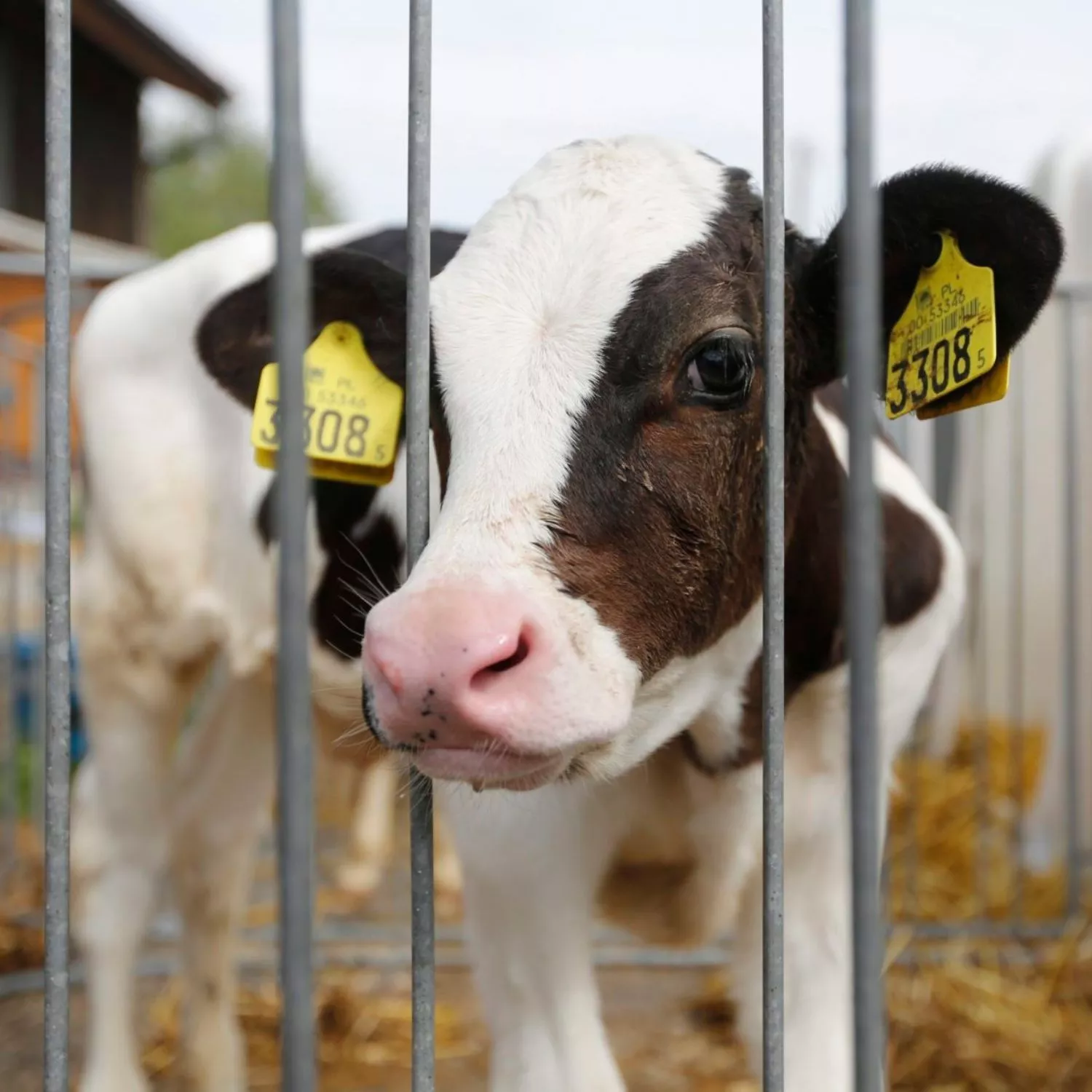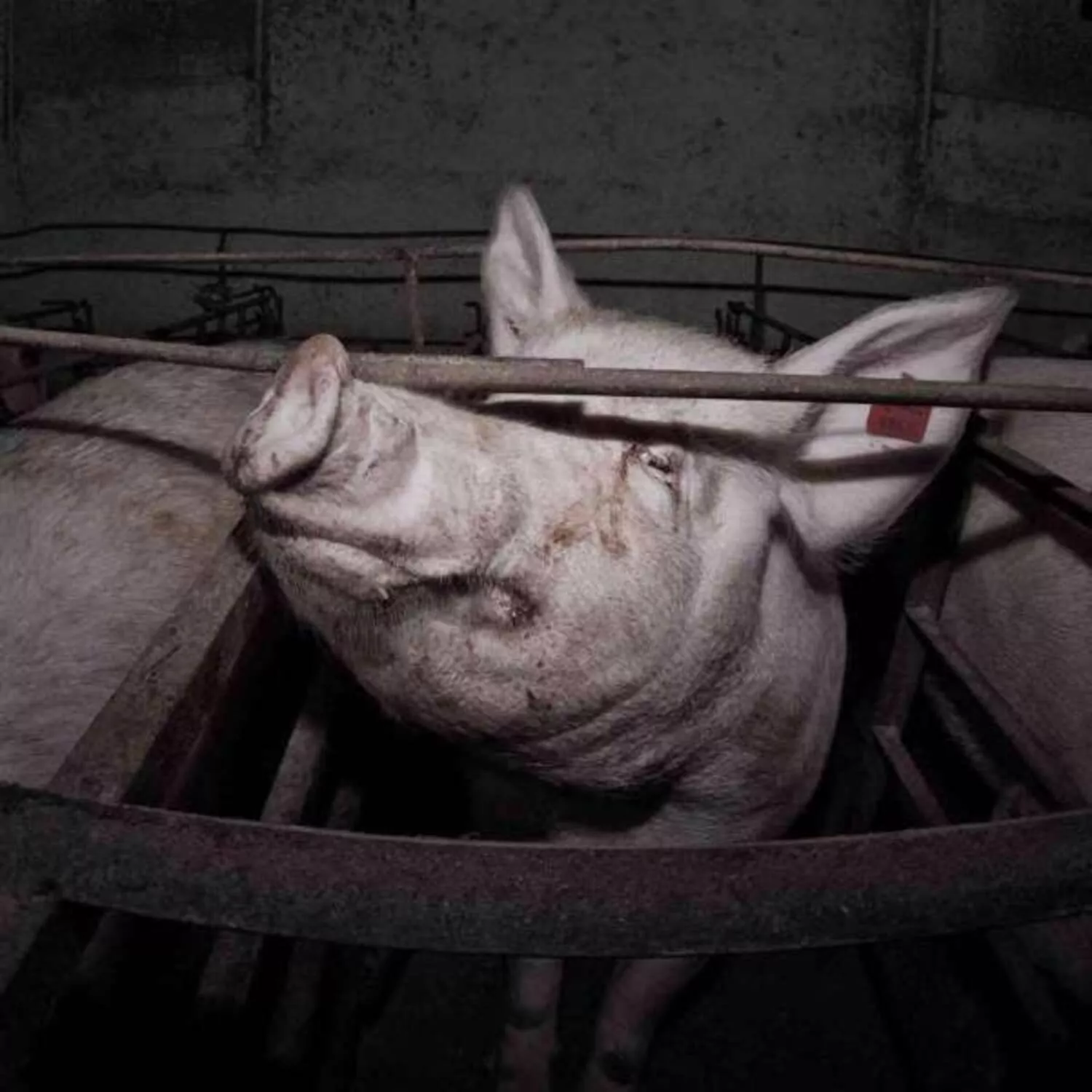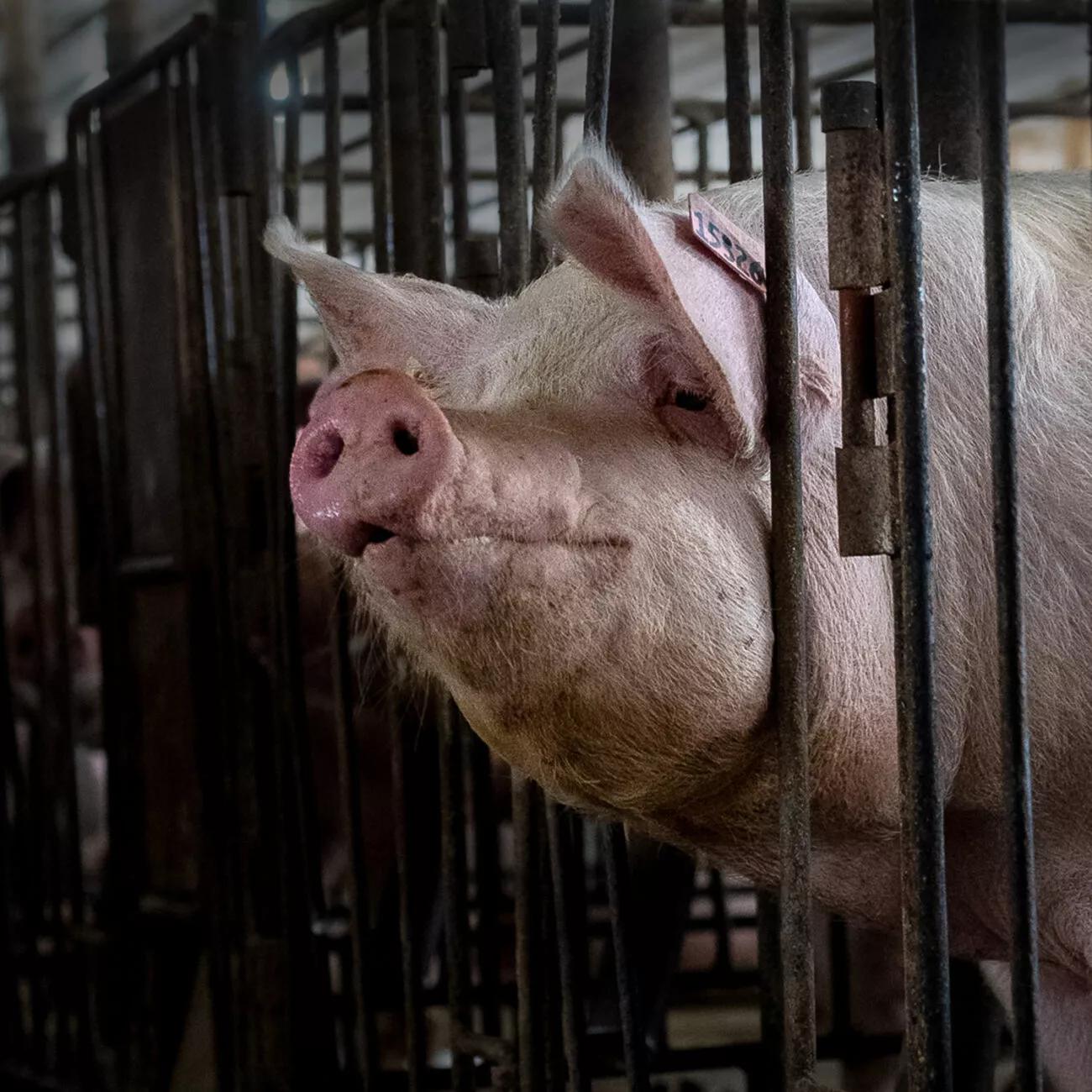
“Save Our Bacon”: An assault on animals
Voter passed laws to keep animals out of cages. Factory farms motivated my greed sued and lost at the Supreme Court.
Now, lobbyists are back with the “Save Our Bacon Act,” a corporate power grab that would erase the most basic protections for animals, silence voters, and force cruel products back into stores.
Tell lawmakers: Defend the most basic protections for animals, stand against the “Save our Bacon” Act.
Factory farms: Lobbying for cruelty
Factory farms are flooding Congress with money, lobbyists, and lawsuits to erase space requirements for animals for the sake of “productivity” and profit. The “Save Our Bacon Act” would let producers in states with weaker laws ignore Prop 12 and still sell cruel products in California.
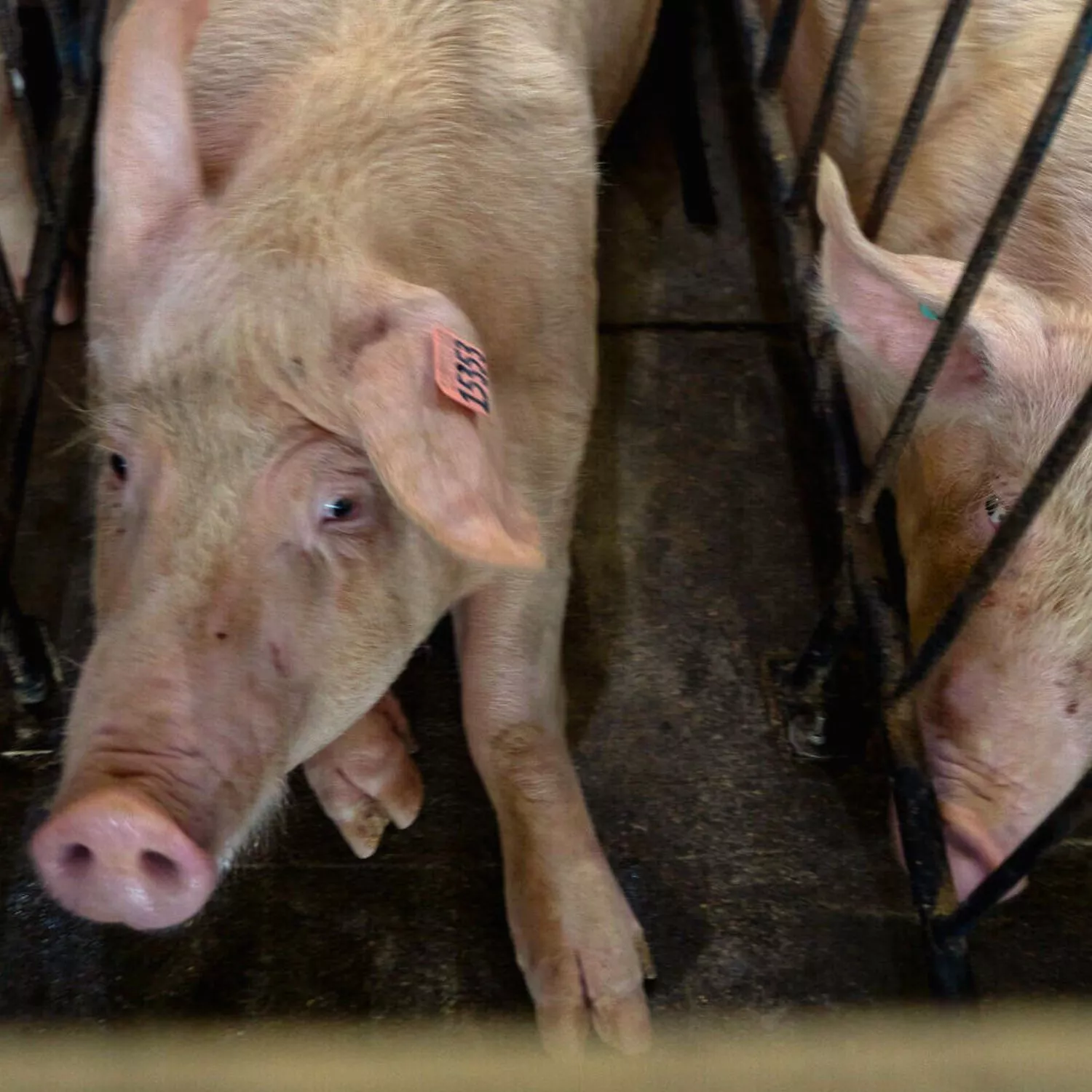
Prop 12 gives pigs 24 square feet and calves 43 square feet—just enough room to turn around and stretch. The Save Our Bacon Act would erase these protections, forcing animals back into the most cruel conditions to “boost profits”.
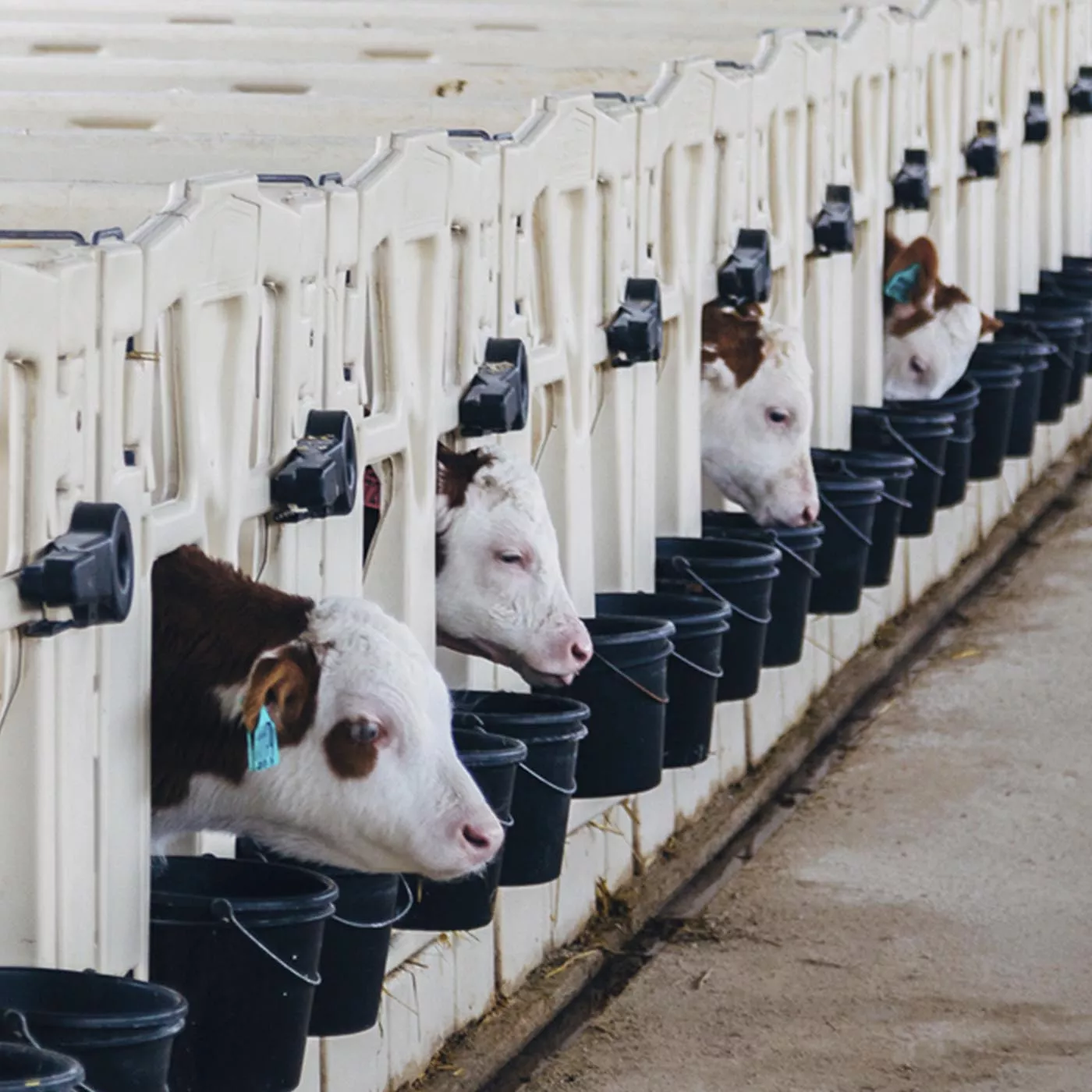
Male calves are often confined to stunt muscle growth and keep their flesh “tender” for veal. At a Nebraska dairy farm, investigators found calves frozen to the ground in tiny outdoor pens, their hooves bloodied and detaching. Dairy farms like these often supply the veal industry.
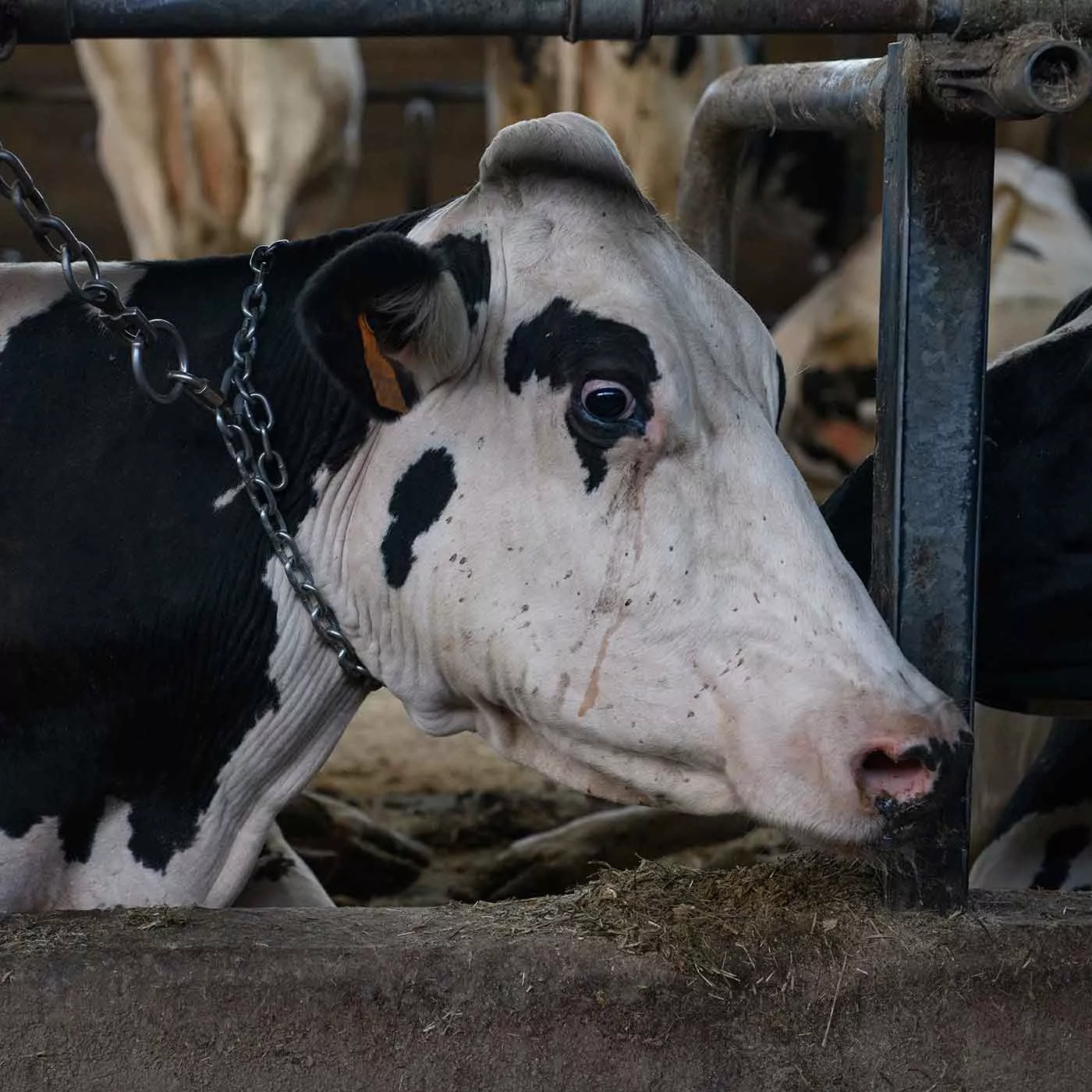
Mother cows are repeatedly impregnated and milked, often in crowded, barren sheds. Prop 12 requires basic space so cows can stand, lie down, and turn around. The Save Our Bacon Act would erase these protections, leaving them confined under weaker state rules.
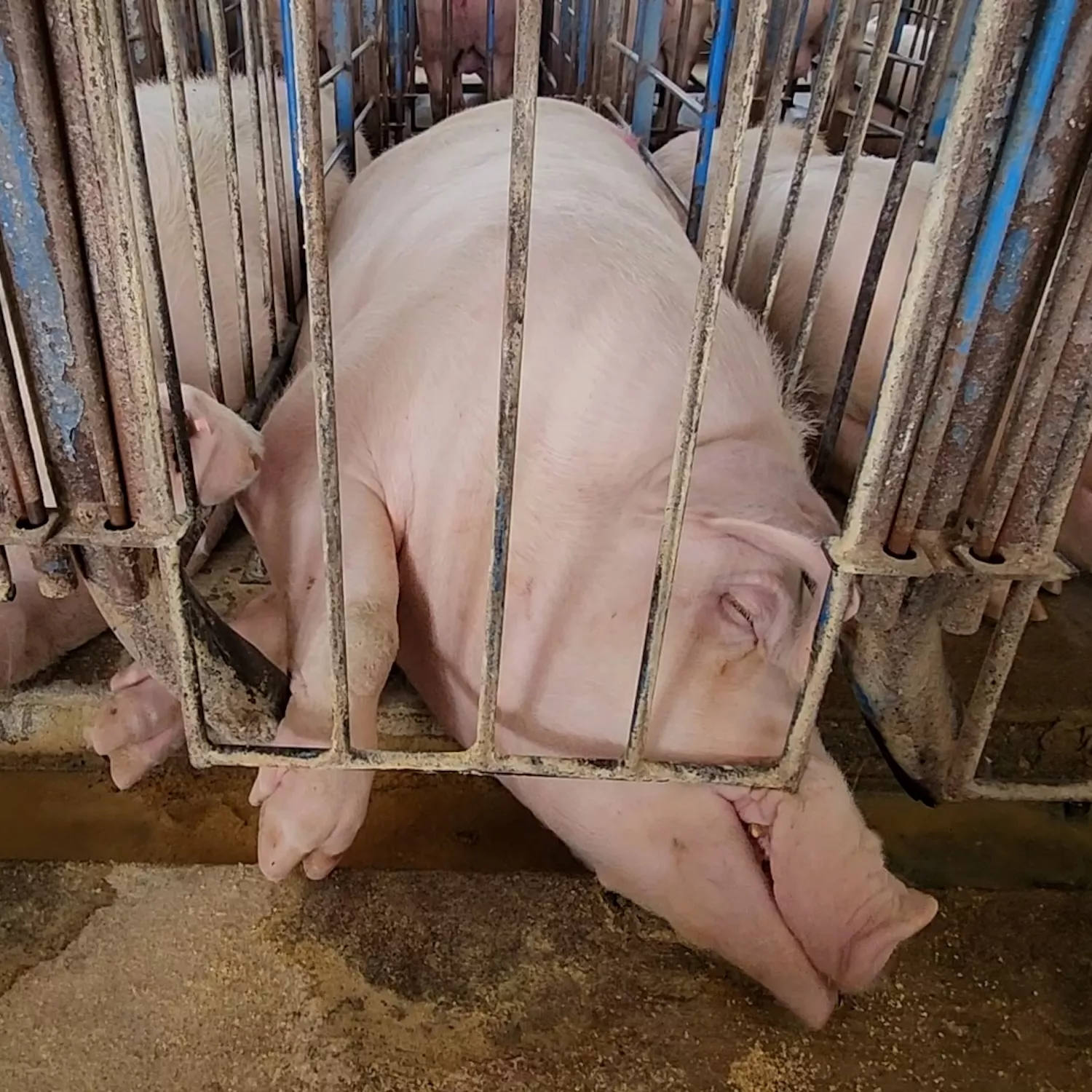
At a Kansas farm, investigators found pregnant pigs trapped in crates so small they couldn’t turn around for months. One mother wedged her head beneath the bars, desperate for space, and screamed until an investigator freed her.
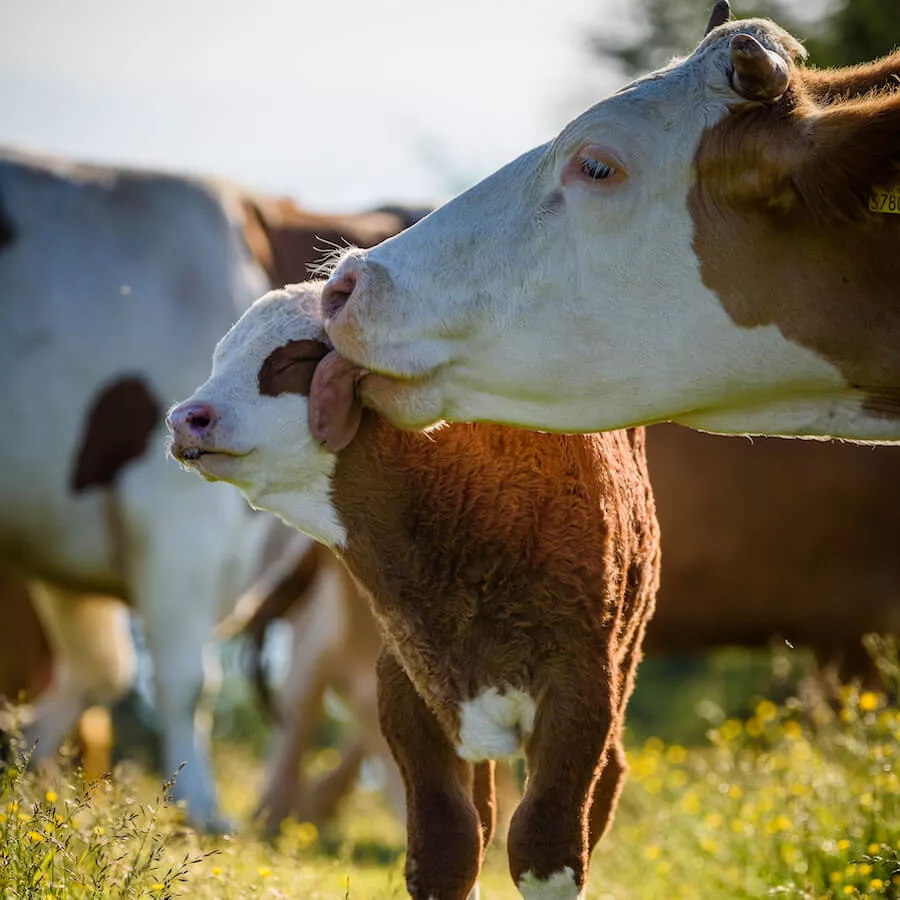
Fight cages at the dinner table
Prop 12 defends animals in court. You can defend them at dinner. Each plant-based choice spares lives and gives you a reason to feel proud.

